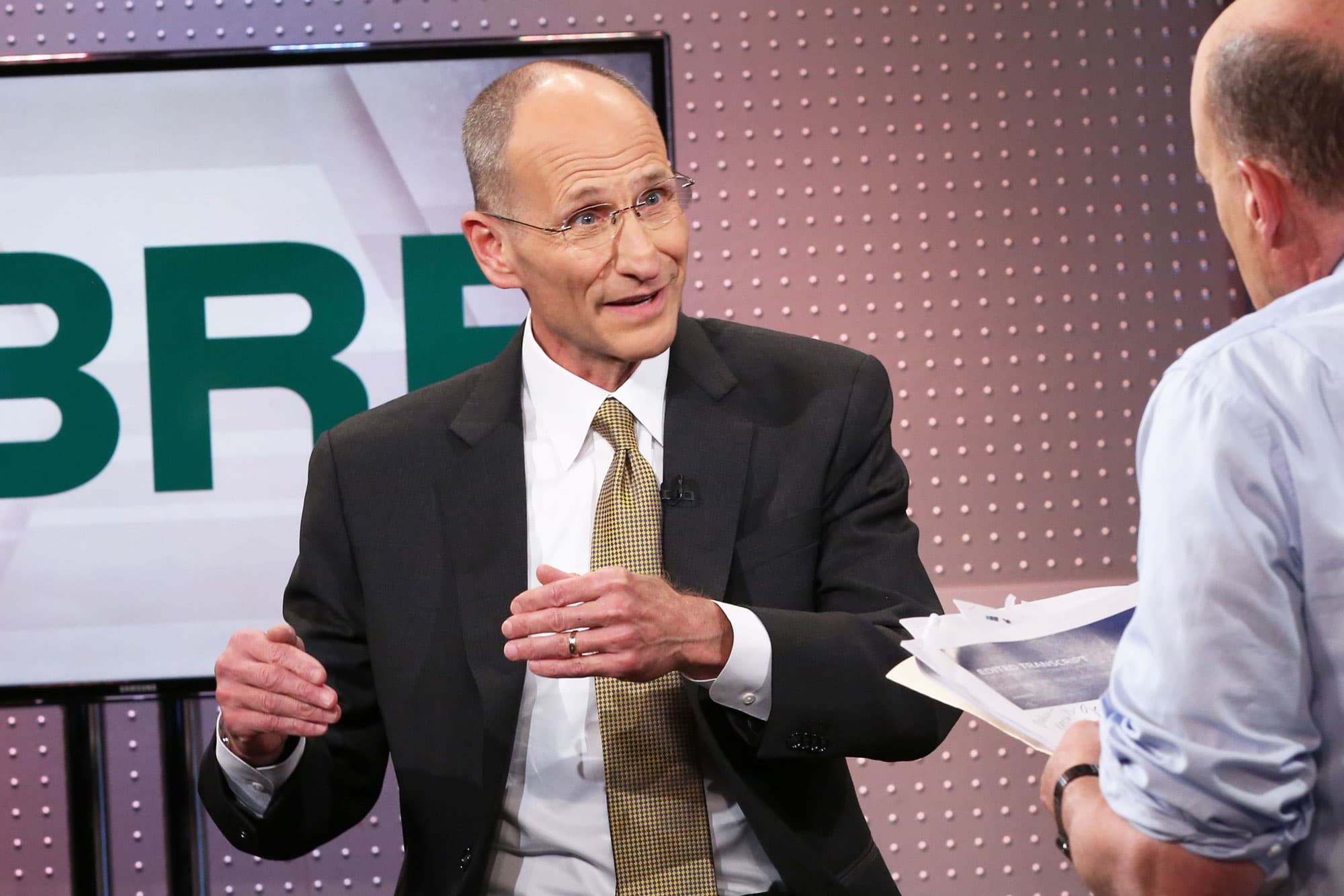
The CEO of real estate firm CBRE told CNBC on Friday he expects the coronavirus pandemic to have created a lasting impact on offices — but he’s hardly envisioning a doomsday outcome.
“You’ll see a hybrid scenario. Lots of returning to the office. We think 80%-plus of that occupancy, if not more, will come back,” Bob Sulentic said on “Power Lunch.” “There will be remote working flex space. There will be working from home, and there will be creative things happening in the use of office space. That’s for certain.”
The future of the office — and how much square footage will be needed — has been in question for months after the Covid-19 outbreak in the spring caused companies to shift to remote work. Firms such as Wall Street banks have welcomed back a small percentage of employees, while others have opted to keep the vast majority of their employees working digitally as the virus remains widespread in the U.S.
For some companies, such as software firm Okta and Jack Dorsey’s Twitter and Square, the pandemic has caused them to offer employees a permanent work-from-anywhere arrangement if they so choose.
In Sulentic’s opinion, the rollout of a vaccine to prevent Covid-19 will be crucial in having more employees back in the building. “We think by the second half of next year, you’ll see much more activity in office buildings,” said Sulentic, whose Dallas-based firm is the largest commercial real estate services and investment firm in the world.
By the time 2022 rolls around, Sulentic said, he foresees additional recovery in the hotel and retail sectors. “So it is a mixed story,” he said, as there are now “pieces of the market with secular tailwinds and other pieces of the market with secular headwinds introduced by Covid.”
Warehouses and data centers represent an area of strength in the real-estate market during the pandemic, Sulentic said, with further adoption of e-commerce and companies pivoting to the cloud. “There’s no comeback on warehouses. There’s been record activity level on that throughout the Covid period for the most part,” he said. “Data centers are super strong, so you’re not talking about comeback in those asset classes.”
CBRE’s exposure to those segments of the real estate market are likely the reason the company’s shares are positive for the year despite pandemic disruption, Sulentic suggested.
“Our earnings stream has been far more resilient than people expected, and that’s really what you’re seeing in our stock,” he said. The Vanguard Real Estate Index Fund ETF is down about 9% in 2020, while shares of CBRE are up about 7.5% year to date.
The stock closed slightly lower Friday at around $66 per share. On Wednesday, it hit a 52-week high of $67.70.




